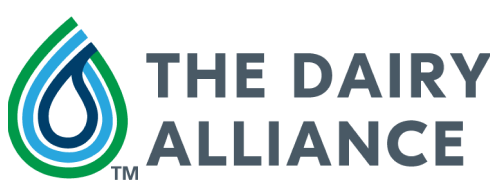What to Eat When You’re Expecting
Every parent wants to give their child the best start in life. During the first 1,000 days—starting from pregnancy and extending through toddlerhood—children’s brains grow more rapidly than at any other time. This period calls for high-quality nutrition, and dairy is key to supporting strong brain, bone, and body development during these critical early years.
The American Academy of Pediatrics highlights 14 essential nutrients that influence early brain development. Remarkably, dairy products supply 7 of these nutrients, including iodine, vitamin B12, and choline. Here’s how these nutrients benefit your baby and simple ways to include them in your diet.
Iodine
Why It Matters: Supports baby’s brain development
How Much You Need: 220-290 micrograms (mcg) a day during pregnancy. 290 mcg when breastfeeding
Good Sources: Dairy products like milk and yogurt
Dairy Benefits: One cup of milk provides around 40% of the recommended amount during pregnancy
Simple Ways To Add More: Swap water for milk in oatmeal, soups, or even smoothies to effortlessly boost your iodine intake.
Vitamin B12
Why It Matters: Essential for the formation of red blood cells and proper brain development
How Much You Need: 2.6 micrograms (mcg) a day during pregnancy
Good Sources: Lean meat, fish, eggs, and dairy products
Dairy Benefits: One cup of milk provides approximately 1.2 mcg of Vitamin B12
Simple Ways To Add More: Incorporate a glass of milk with meals or add cheese to your favorite dishes
Choline
Why It Matters: Critical for brain development and function
How Much You Need: 450 milligrams (mg) a day during pregnancy
Good Sources: Eggs, lean meats, soy, and dairy products
Dairy Benefits: One cup of milk provides around 40 mg of choline
Simple Ways To Add More: Blend milk into your morning smoothie or enjoy a yogurt parfait topped with nuts and seeds
Folate and Folic Acid
Why It Matters: Prevents brain and spinal cord birth defects
How Much You Need: 600 to 1,000 micrograms (mcg) a day during pregnancy
Good Sources: Fortified cereals, dark green leafy vegetables, citrus fruits, and legumes
Simple Ways To Add More: Start your day with fortified cereal or add leafy greens like spinach to your smoothies or salads
Other Important Nutrients
Calcium
Why It Matters: Strengthens bones and teeth and supports healthy functioning of the circulatory, muscular, and nervous systems
How Much You Need: 1,000 milligrams (mg) a day; pregnant teenagers need 1,300 milligrams a day
Good Sources: Dairy products, broccoli, kale, and fortified juices
Dairy Benefits: Milk, cheese, and yogurt provide 250-330 mg of calcium per serving
Simple Ways To Add More: Enjoy a glass of milk with meals or snack on yogurt and cheese
Vitamin D
Why It Matters: Works with calcium to help build your baby's bones and teeth
How Much You Need: 600 international units (IU) a day
Good Sources: Fatty fish like salmon, fortified milk, and orange juice
Dairy Benefits: One cup of fortified milk provides 115 IUs of vitamin D
Simple Ways To Add More: Drink fortified milk daily or incorporate it into smoothies, soups, oatmeal, lattes, and cereals
Protein
Why It Matters: Promotes growth and supports the development of your baby’s tissues
How Much You Need: 71 grams (g) a day
Good Sources: Lean meat, poultry, seafood, eggs, beans, nuts, and dairy products
Dairy Benefits: Milk, yogurt, and cottage cheese provide 8-30 grams of protein per serving
Simple Ways To Add More: Make oatmeal with milk, snack on Greek yogurt, or try making a dip with blended cottage cheese
Iron
Why It Matters: Prevents iron deficiency anemia, supporting healthy blood production for both mother and baby
How Much You Need: 27 milligrams (mg) a day
Good Sources: Lean red meat, poultry, fish, iron-fortified cereals, beans, and vegetables
Simple Ways To Add More: Pair iron-rich foods with vitamin C-rich foods, like adding berries to your cereal, to boost iron absorption
Nourishing your baby begins with nourishing yourself. By including these essential nutrients, especially those found in dairy, you’re setting the foundation for your child’s growth and development during those important early days. Along with a balanced diet, taking prenatal vitamins can help ensure you’re getting the additional nutrients your body needs during pregnancy. Make simple, delicious choices that support your health and your baby’s future.
Chelsea LeBlanc is an award-winning registered dietitian, media personality, recipe developer, and nutrition expert based in Nashville, TN. With a virtual private practice, Chelsea specializes in helping career-driven women plan and prep quick and easy meals on a budget. Her insights and expertise are frequently featured in top media outlets, including Eat This, Not That!, Well + Good, MSN, and Eating Well.





